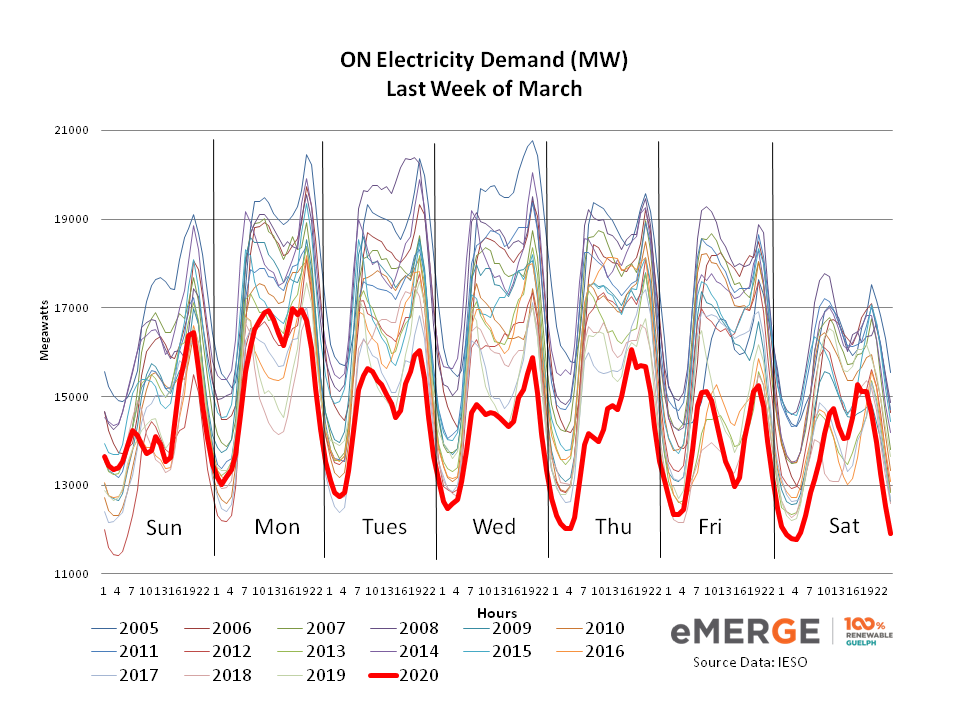In the last week of March, electricity consumption in Ontario was the lowest in 15 years according to eMerge, a local non-profit that promotes renewable energy to reduce the effects of climate change.
The organization is projecting a continued decline as the lockdown remains in place during the COVID-19 pandemic.
“We seem to be settling into a new normal, and that new normal is significantly lower consumption,” said executive director of eMerge, Evan Ferrari.
Every day, he reviews data from The Independent Electricity System Operation (IESO), which includes residential and commercial energy usage in Ontario including bio fuel, solar, wind, gas, hydro and nuclear. He collects the data and organizes it into a chart that compares levels from 2005-2020 and takes into account variables like changing weather, holidays and peak times.
Ferrari has noticed a steep decline in provincial consumption levels since March 22 – the day before Premier Doug Ford announced the provincial lockdown.
“[Guelph] socioeconomics are not that different from the average in Ontario, so I suspect that our curves are looking pretty similar,” he said, adding that local information isn’t readily available online but that eMerge will continue to update their blog regularly with relevant information.
Similar patterns have emerged across the country and around the world as the mandatory closure of non-essential businesses and industries has forced many people to stay at home and practise physical distancing. Hydro-Quebec says residential consumption is up two per cent and commercial consumption is down three per cent. In British Columbia, the province’s hydro provider reported business and residential consumption dropped by 15 and 13 per cent respectively.
The drop in demand is also reflected in lower prices. On March 24, HydroOne announced that it would temporarily reduce pricing to an off-peak flat rate for 45 days. Ferrari says that while this is a welcome financial relief for many people currently out of work, he still recommends reducing energy-intensive activities during peak hours.
“If everyone is doing their laundry, dishwashing, and cooking at exactly the same time … our CO2 emissions go through the roof. From a climate change perspective, we call it peak shaving. If we can shift the use of electricity away from that peak, we reduce the fossil fuel that's burned.”
Ferrari believes eMerge has an important role to play in ensuring climate change is part of the conversation surrounding COVID-19. The organization hosts public programs to promote energy-efficient practices as well as home visits to advise on ways to reduce energy consumption, but Ferrari says they are making the switch to virtual home visits and phone consultations.
“We’re hoping we can provide people with other opportunities to save money at this time by reducing energy in different ways and reducing [their] impacts on climate change.”
Looking ahead, Ferrari says he’s cautiously optimistic that the COVID-19 pandemic could mean a shift towards a more energy efficient world.
“COVID-19 demands a massive international approach and many countries in the world are profoundly impacted by it. The biggest impact that I'm hoping this can have is that people will take that same vigor and approach fighting climate change.”
For a full analysis of Ontario energy consumption in the time of COVID-19, visit the eMerge website.



